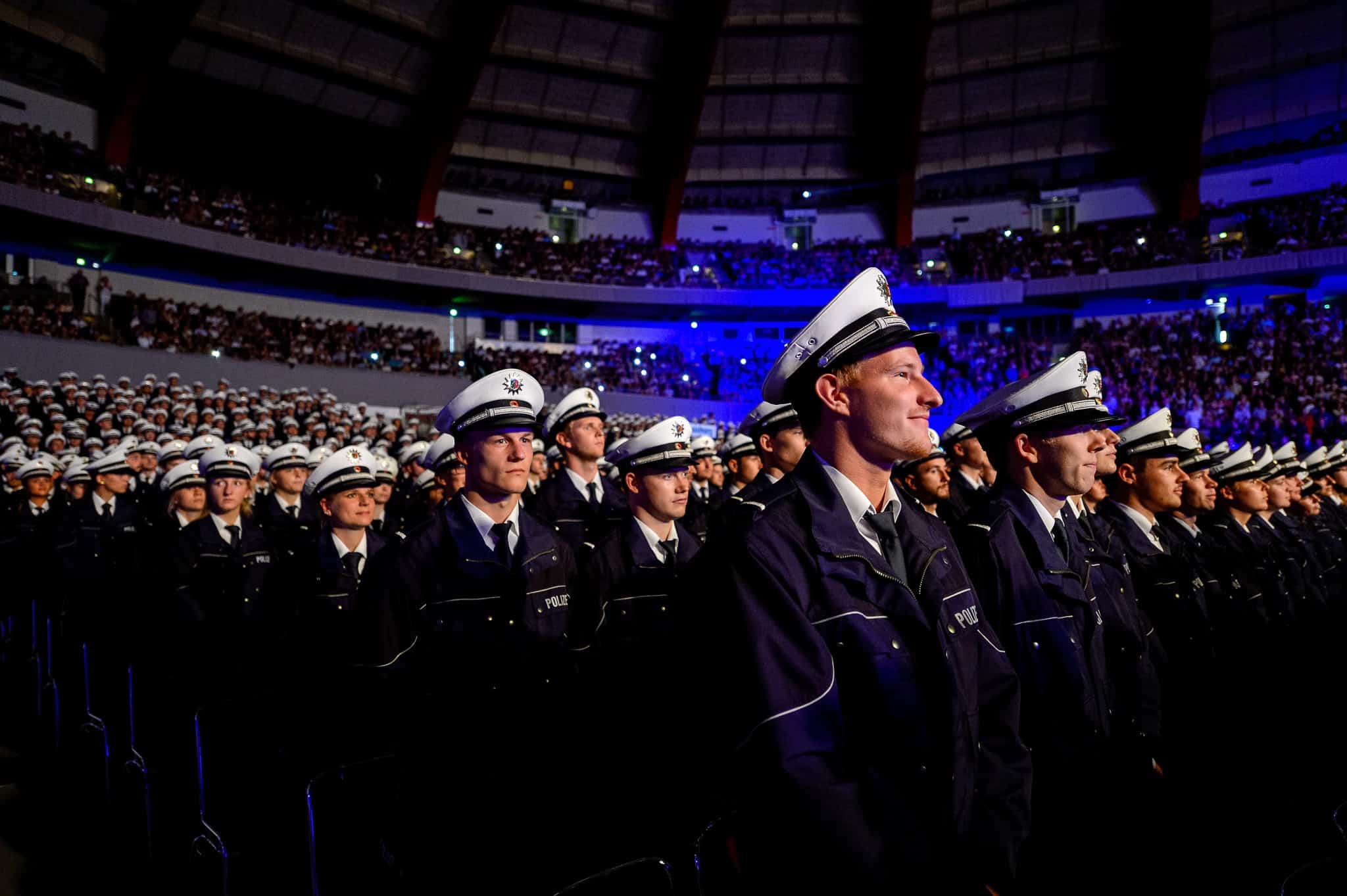 DORTMUND, GERMANY – JULY 11: Newly graduated police cadets in the state of North Rhine-Westphalia attend their swearingin ceremony at the Westfalenhalle on July 11, 2017 in Dortmund, Germany. A total of 1,920 new policemen and women celebrated their swearing-in in a two-hour ceremony. Germany is facing federal elections this year and security, in light of domestic terror attacks as well as riots during the G20 summit in Hamburg, is a central election campaign issue. (Photo by Sascha Schuermann/Getty Images)
DORTMUND, GERMANY – JULY 11: Newly graduated police cadets in the state of North Rhine-Westphalia attend their swearingin ceremony at the Westfalenhalle on July 11, 2017 in Dortmund, Germany. A total of 1,920 new policemen and women celebrated their swearing-in in a two-hour ceremony. Germany is facing federal elections this year and security, in light of domestic terror attacks as well as riots during the G20 summit in Hamburg, is a central election campaign issue. (Photo by Sascha Schuermann/Getty Images) (JTA) — In the United States, applicants can become police officers in as little as 11 weeks, the requirement in Georgia. In Germany, the process takes at least 2 1/2 years and involves learning Holocaust history: For example, since 1984, all trainees in Berlin must visit the former Sachsenhausen concentration camp.
That’s from a New York Times report this week on how Germany reorganized its police force after World War II, and the pros and cons of following the country’s lead in the U.S., where debate about police reform has raged since an officer killed George Floyd in Minneapolis by kneeling on his neck.
In addition to decentralizing and “denazifying” the police, who were a crucial force in carrying out Hitler’s orders and murdered over a million people during the war, Germany sought to instill a new culture in its officers — what a historian calls demilitarization. Cadets must pass personality and intelligence tests before taking law, ethics and police history courses. They are taught to rarely draw their weapons. Minor things such as parking tickets are handled by unarmed officers.
Learning about the Holocaust plays a key role in the training. One officer interviewed said his entire graduating class watched “Schindler’s List” together in 1994. Through the federal police union, two trips to Israel and the Yad Vashem Holocaust memorial museum are offered every year.
Germany is a much smaller country than the U.S., but there have been results. From the report:
“[P]olice fatally shot 11 people and injured 34 while on duty in 2018, according to statistics compiled by the German Police Academy in Münster.
“In the United States, with a population four times that of Germany, 1,098 people were killed by police in 2019, according to Mapping Police Violence. In Minnesota alone, where Mr. Floyd was killed, police fatally shot 13 people.”























 More news and opinions than at a Shabbat dinner, right in your inbox.
More news and opinions than at a Shabbat dinner, right in your inbox.